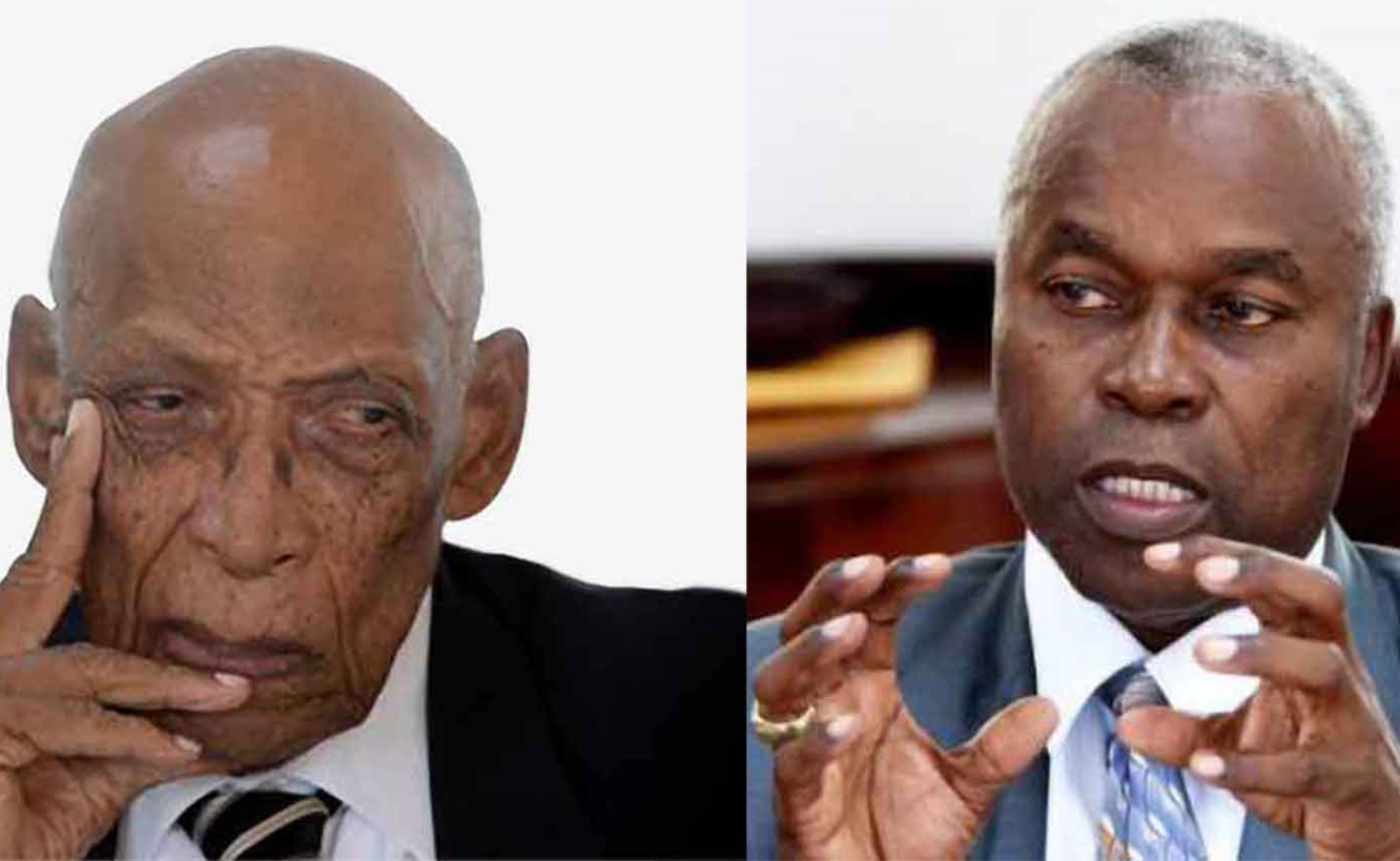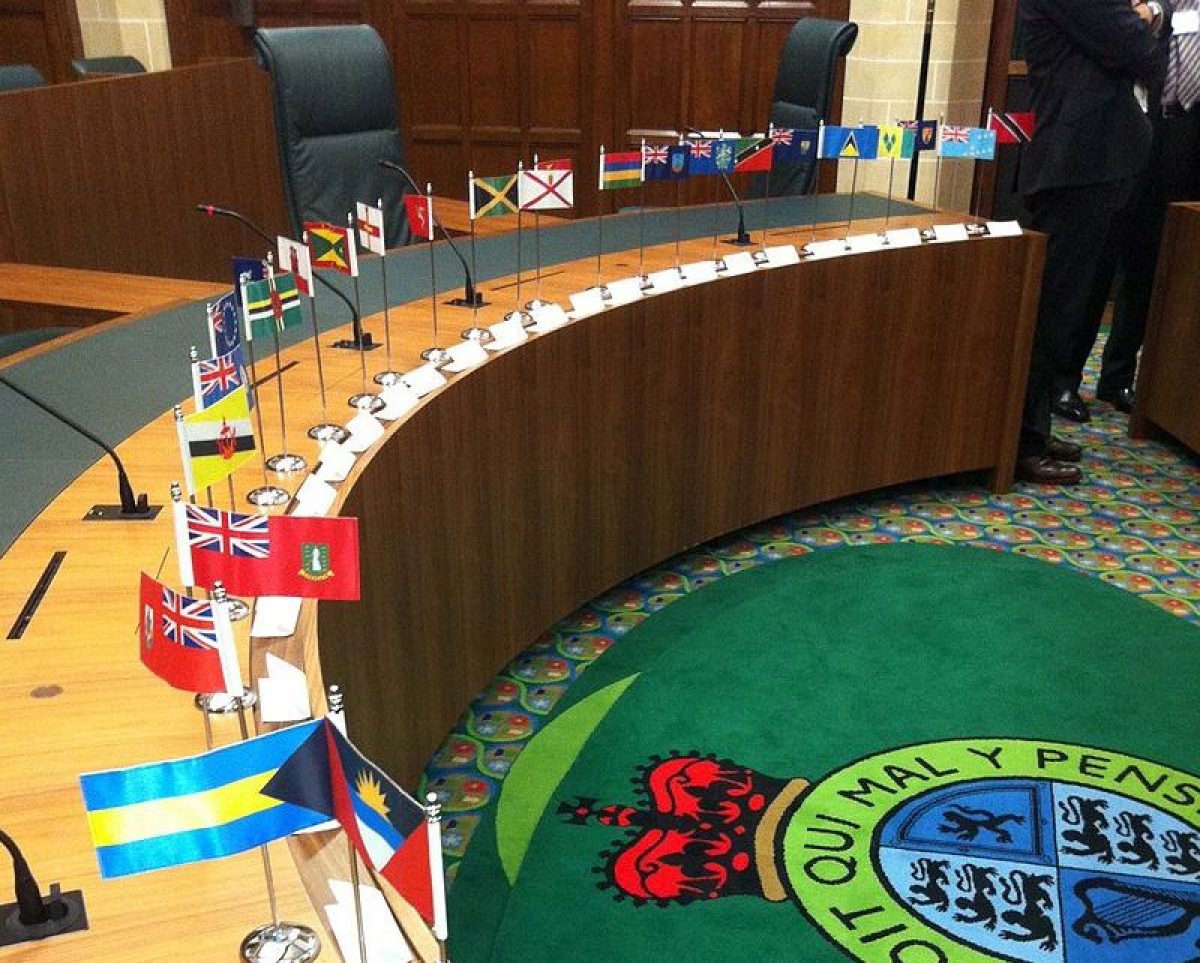JAMAICA'S Legal Masterstroke: How Two Attorneys Plan to Trap King Charles on Slavery Reparations

KINGSTON, Jamaica, July 3, 2025 - Two Senior Jamaican lawyers have unveiled an ingenious strategy to force Britain's hand on reparations before transitioning to a republic. In a chess move that would make legal historians gasp, Jamaica has discovered a 192-year-old loophole that could force King Charles III to confront his nation's darkest chapter—whether he likes it or not.
Two of Jamaica's most distinguished attorneys, King's Counsel Frank Phipps and Senior Counsel Bert Samuels, outlined this legal strategy during a revealing appearance on Radio Jamaica's (RJR) Hotline talk show with host Clive Mullings. Their plan is so audacious it borders on poetic justice: using Britain's own colonial-era laws to demand compensation for slavery.
The weapon of choice? Section 4 of the Judicial Committee Act of 1833—the same year Britain supposedly abolished slavery while compensating slaveholders £20 million for their "lost property."
The bitter irony is not lost on these legal architects: the very law meant to maintain colonial control may now become the instrument of colonial reckoning.
"We are not making a petition to our head of state," Frank Phipps declared with characteristic precision during the radio interview. "We are demanding compensation. We're not begging, seeking, or pleading." His words, delivered to Mullings' audience, cut through decades of diplomatic niceties to expose the raw nerve of historical injustice.
 The court room of the Judicial Committee of the Privy Council in London.The Ingenious Legal Framework
The court room of the Judicial Committee of the Privy Council in London.The Ingenious Legal Framework

The strategy centers on a provision that allows any matter of "great public interest" affecting former colonies to be referred to the King for advice from his Privy Council. Under the Judicial Committee Act of 1833, Charles, who remained Jamaica's head of state after the country gained independence from Britain in 1962, has the authority to refer matters to the council for consideration.
Bert Samuels, speaking with the authority of someone wearing both his legal and historical hats, explained to Mullings the constitutional paradox that makes this possible: "Although we are independent, King Charles is the head of state of Jamaica. His mother came to Jamaica about 50 years ago, and when she addressed her parliament, she said, and I quote, 'my government in Jamaica,' and she was correct, constitutionally correct."
The petition poses three devastating questions to the monarch:
First, whether the forced transportation of African people to Jamaica and their subsequent enslavement until 1833 was lawful, given that such actions violated fundamental principles of common law.
Here, the lawyers invoke the Somerset case of 1772, where Lord Mansfield decided that slavery was "so odious, that nothing can be suffered to support it, but positive law" and that it could not be approved "by the law of England."
Second, whether these acts constituted crimes against humanity under international law. As Samuels pointedly noted, "Once it is a crime, there are no statutes of limitation."
Third, whether Britain bears an obligation to provide remedy to Jamaica for these historical injustices.
A Tale of Two Ironies
The timing reveals a delicious historical irony. The same legal mechanism designed to maintain Britain's grip on its former colonies now threatens to expose the monarchy's complicity in slavery.
As Samuels observed, "The monarchy was itself involved in slavery. There was a previous Charles, King Charles, back in the 18th century, who had a monopoly on the Atlantic Ocean and collected money from the slavers."
The Somerset case of 1772 provides the smoking gun that could shatter any British defense. Chief Justice Mansfield ruled that it was unlawful to transport an enslaved person forcibly out of England, with the decision being "popularly taken to mean that slavery was illegal in England." Yet simultaneously, Jamaica remained "rife with slavery," creating a legal contradiction that has festered for 250 years.
"Can you believe," Samuels asked with incredulity, "that Jamaica at the time, 1771, was rife with slavery, and on one part of the empire, slavery is illegal. Another part down here, it was legal."
The Republic Race Against Time
The second irony is even more pressing. Jamaica's movement toward becoming a republic—cutting constitutional ties with the British crown—creates a ticking clock for this legal strategy. Once Jamaica becomes a republic, King Charles will no longer be head of state, and the Section 4 avenue will close forever.
During the radio discussion, Phipps crystallized the stakes: "If you become a republic, you lose the right to go to your head of state because Charles III will no longer be our head of state."
The question becomes, as he posed it to Mullings and the listening audience, "Are you prepared to give up that right in order to become a republic?"
This race against constitutional change adds urgency to Jamaica's legal maneuvering. The petition comes after Jamaica's government presented a bill in December last year to ditch the king as head of state.
They have cautioned Prime Minister Andrew Holness not to rush toward republicanism until the compensation question is resolved.
The Price of Historical Amnesia
The lawyers painted a picture of compound historical injustice that extends far beyond slavery itself. When Britain paid £20 million to compensate slave owners in 1833, it created a debt that wasn't fully paid off until 2015.
The cruel mathematics mean that generations of Caribbean immigrants to Britain—including many Jamaicans—helped pay through their taxes to compensate the very planters who had enslaved their ancestors.
"The Windrush generation, maybe your grandfather who went to England, any of your family go to England," Samuels explained, "they were helping to pay the planters who went to sleep, their ancestors. They were helping to pay them, the planters, the white planters, their 20 million pounds."
The Zong massacre of 1781 provides another horrific example of slavery's intersection with British law and commerce. When a slave ship threw 133 Africans overboard to claim insurance money, the case went before the same Lord Mansfield who had ruled in the Somerset case.
"They were bold enough to go to court in England," Samuels recounted, "saying, listen, we lost our cargo, which is black people, and we want to be compensated for throwing those cargo that we threw overboard."
Legal Trap or Constitutional Escape?
The petition places King Charles in an impossible position. If he refers the matter to the Privy Council, he risks a legal ruling that could establish Britain's obligation to pay reparations.
If he refuses, he appears to be shirking responsibility as head of state. If he delays until Jamaica becomes a republic, he may be accused of running out the clock on justice.
Charles expressed deep sorrow over slavery in a speech to Commonwealth leaders in 2022 but Britain, like other former colonial powers, has so far rejected demands for reparations. The legal strategy forces him to move beyond expressions of sorrow to concrete action.
The Semantic Battle
Phipps made clear that language matters in this fight. "Do not use the word reparation," he insisted. "And do not use the word petition." The terminology reflects a fundamental philosophical difference about what Jamaica seeks.
"How are you going to explain what reparation means? Repairing? Repairing what?" Phipps asked. "Repairing what never existed because these people who were culled from Africa... were transplanted on virgin soil in the New World." Instead, he argues for "compensation for what took place" when human beings "became the property of somebody else."
This isn't about repairing something broken, in Phipps' formulation, but about compensating for a crime that suspended the natural freedom of human beings. As he put it, echoing Bob Marley's "Redemption Song": "Don't give up the fight, stand up for your right."
In a moment of professional recognition during the broadcast, Samuels paid tribute to his colleague: "Sir Mullings, in the presence of my senior King's Counsel, Frank Phipps, I just want to pay tribute to him for the innovation and the deep research which led him to the idea that Section 4 could be part of the fight for compensation for our people."
Host Clive Mullings echoed this sentiment, thanking both attorneys "for taking the time to join us on Hotline to flesh out even more clearly the approach, the rationale and implications of seeking compensation."
The case represents more than legal maneuvering—it's a test of whether historical injustices can find remedy through the very legal systems that once sanctioned them.
Jamaica's lawyers have identified what may be the last constitutional avenue to force Britain to confront its slavery legacy before the ties that make such challenges possible are severed forever.
Whether King Charles will accept this challenge or attempt to wait out Jamaica's constitutional transition remains to be seen. But the legal trap has been set with the precision of master strategists who understand that sometimes the most powerful weapon against historical injustice is the oppressor's own law, turned against itself.
As Jamaica's attorneys prepare their formal submission, they carry not just legal briefs but the weight of history—and perhaps the last chance to transform centuries of moral debt into constitutional obligation before the monarchy slips beyond their constitutional reach. In this high-stakes game of legal chess, they've placed the King in check. Now the world waits to see his next move.
-30-
